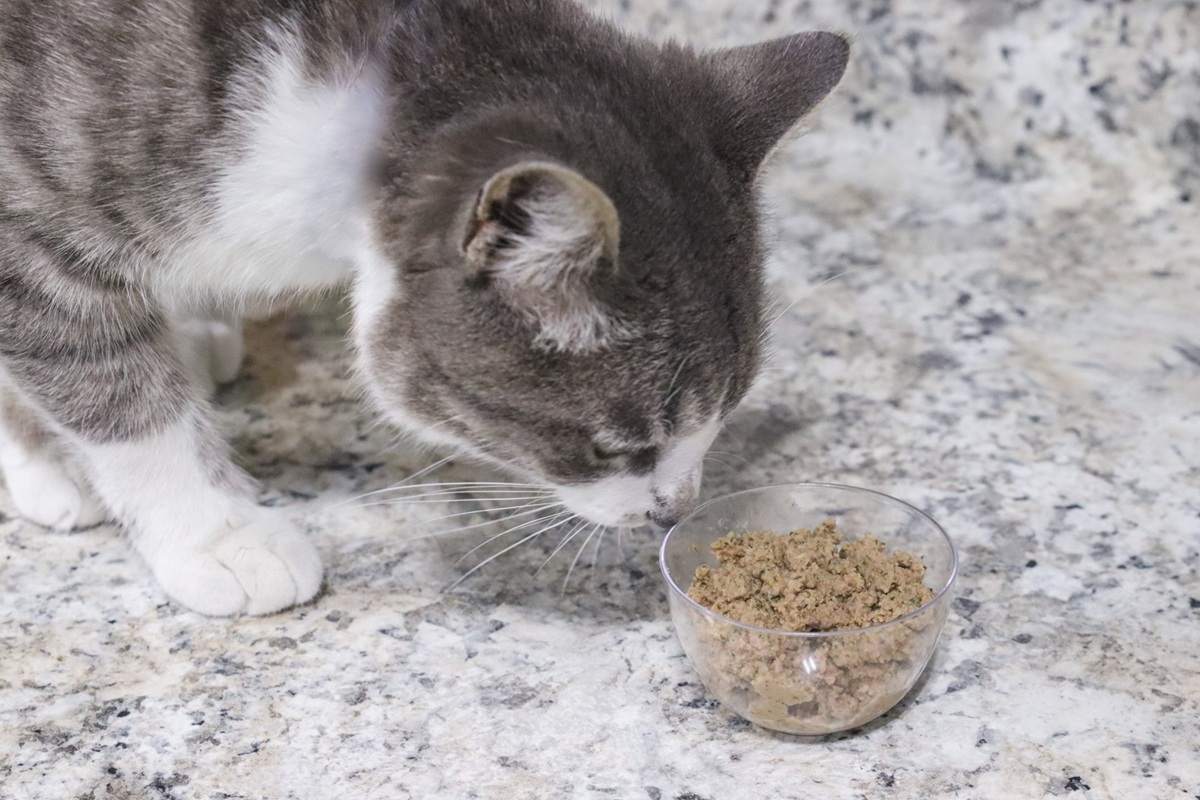
Kirsten McCarthy / Cats.com
You may have noticed that your cat doesn’t chew her food and throws it up afterwards, is this something to be concerned about? The simple answer is yes. Your cat shouldn’t be throwing up regularly and this could be a sign of an underlying problem. We’ll discuss everything that you need to know.
Do Cats Chew Their Food?
First of all, we need to ask is it normal for cats not to chew their food? Yes, it can be completely normal. We’re used to eating our food by chewing it up into small, digestible pieces that are easy to swallow. This isn’t the same for our feline companions.
Cats are obligate carnivores and this is obvious if we look at cat’s teeth. In comparison to humans who have a lot of large incisors and molars with flat surfaces, cats have large sharp canines. They have small incisors with minimal function and fewer molars that have sharp points. Their teeth are built for tearing and ripping meat.
In the wild, they would tear pieces of meat off their prey and eat them. Sometimes eating them whole or with very little chewing. This is similar for our pet cats. They’ll often eat pieces of wet food whole or after chewing it a few times. They can also swallow dry kibble whole but it’s more likely to see them chewing this into smaller pieces, particularly if the kibble is big in size.
Does Swallowing Food Whole Cause Vomiting In Cats?
In general it’s quite common for cats not to chew their food, particularly if the food is wet food or very small in size (dry kibble). I’ve seen many cats that have no teeth at all and they manage just fine to eat wet and dry food. In most cases this doesn’t cause any issues for cats. However there are some exceptions.
In some cases it can cause regurgitation. Regurgitation usually occurs within 30 minutes of eating the food and it’s when food is brought back up mostly undigested and whole. It hasn’t been digested by stomach acids yet and isn’t technically classed as vomiting. It’s a passive process and it can occur when food is in the mouth, esophagus or for a short time in the stomach.
Why Do Some Cats Regurgitate After Not Chewing Their Food?
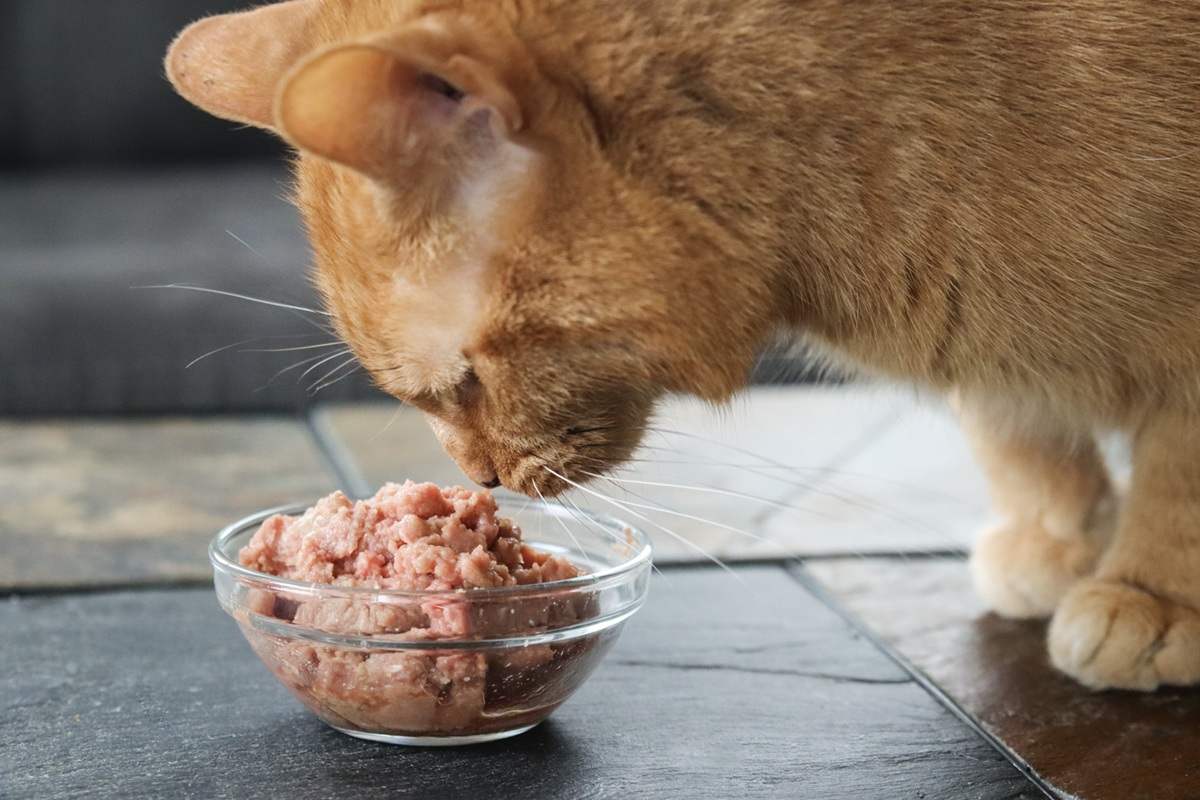
In the wild, they would tear pieces of meat off their prey and eat them. Sometimes eating them whole or with very little chewing. Kirsten McCarthy / Cats.com
If cats regurgitate after eating their food whole, it might be that the problem isn’t that the food hasn’t been chewed but that they’re eating it too fast. Eating food too fast can overwhelm the gastrointestinal system/digestive tract and they can regurgitate the food as a result. This is particularly common if cats eat dry cat food or kibble very fast.
Another reason for this is if the cat is eating large quantities of food. Again, this is too much for the stomach to cope with and the body regurgitates the food.
If they don’t chew their food and they’re eating large treats or kibble, this can cause a choking hazard and the body will regurgitate this as a protective reflex (the gag reflex).
If your cat is truly vomiting their food and it’s not regurgitation, it’s worth considering food allergies or sensitivities, particularly if it’s coincided with a recent food change. For unexplained or ongoing vomiting, please schedule a check-up with your veterinarian to check for underlying illness.
Is This Harmful?
If your cat isn’t chewing their food and they seem healthy and happy, there’s no need to be concerned.
However, if they’re regurgitating their food as described above this would be a cause for concern. Eating food too fast or eating large quantities can cause regurgitation, esophageal irritation, bloat (they ingest air when they eat quickly) and in the long term, obesity.
Eating large pieces of food without chewing them can be a serious choking hazard which could be fatal in some cases.
Tips To Help Your Cat
There are many measures that you can take to help this issue and improve the way your cat eats.
- First of all it’s important that your cat doesn’t eat too fast. If they do, you can get special slow feeding bowls which are widely available. These bowls usually have indentations or grooves, which prevent your cat from eating too fast and slow down eating time. This enhances proper digestion and avoids regurgitation.
- Puzzle feeders/interactive feeders can work similarly. They slow down the eating process and make your cat work for their food. This also stimulates your cat, reduces boredom and can also mimic hunting behavior along with other benefits. By slowing down the feeding time, cats tend to eat less food and this prevents obesity.
- Automatic feeders can also help as we can control how much food and when our cats get fed. This means we can feed them little and often, which can reduce overeating and eating too fast. We have some recommendations here.
- Avoid feeding large treats or pieces of kibble that could be a choking hazard. Ensure that food is small enough to avoid getting stuck if your cat eats it whole without chewing. If you feed dry kibble only, consider adding some wet food to your cat’s diet. Chewing is less of an issue with wet food as it’s soft and generally comes in small pieces already. Therefore it isn’t as likely to cause issues with regurgitation or choking. There are many other benefits of adding wet food to your cat’s diet outlined here.
Words of Caution

If you feed dry kibble only, consider adding some wet food to your cat’s diet. Kirsten McCarthy / Cats.com
We’ve outlined the most common issues that might be associated with cats that don’t chew their food and throw up afterwards and how to remedy it.
However, if the regurgitation is very severe, isn’t resolving or if your cat has other symptoms then please seek veterinary attention.
We’ve described regurgitation as the throwing up of undigested food. If your cat is throwing up digested food, bile or froth and it’s been over 30 minutes since they last ate it’s likely that they’re vomiting, not regurgitating.
Vomiting has multiple causes in cats including;
- Hairballs
- An upset stomach (Gastroenteritis)
- Parasites
- Inflammatory Bowel Disease (IBD)
- Intestinal blockages (With a foreign object)
- Pancreatitis
- Toxins
- Kidney Disease
- Hyperthyroidism
- Liver Disease
I’d recommend getting your cat examined by your veterinarian if this is the case to rule out underlying medical issues. This might include blood and urine testing, an x-ray and ultrasound.
Conclusion
If your cat doesn’t chew their food and is throwing it back up, it might be that they’re eating too fast or eating too much food. Try using slow feeding bowls, interactive feeders or automatic feeders to slow down the feeding time and prevent regurgitation.
If your cat has other symptoms or if the issue isn’t resolving there might be an underlying medical issue. Schedule a check-up with your veterinarian to rule this out.
Frequently Asked Questions:
Why is my cat all of a sudden throwing up her food?
There are many reasons for sudden vomiting including feeding your cat a new type of food. If it’s less than 30 minutes after eating, its regurgitation and common causes are eating too fast, eating too much or eating large pieces of food without chewing them first. Slow feeding bowls, interactive feeders and automatic feeders can help.
When should I be concerned about my cat throwing up?
If your cat is throwing up regularly (once or twice a month) or suddenly vomiting acutely (several vomits in a short period of a few days), seek veterinary attention to rule out common medical issues e.g. gastrointestinal upset, foreign body, poisoning, food sensitivities etc.
Why is my cat throwing up undigested food?
If your cat is throwing up undigested food, this means that they’re regurgitating. Common causes of this would if they eat too fast, eat too much or eating large pieces without chewing. Slow feeding bowls and interactive feeders can help.
How to stop my cat from throwing up after eating?
If your cat is throwing up within 30 minutes of eating and its undigested food, this is regurgitation. Using slow feeding bowls, interactive feeders, automatic feeders and avoiding large treats or kibble can help. Seek veterinary attention if this isn’t resolving or if there’s other symptoms.
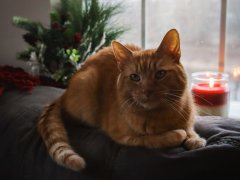
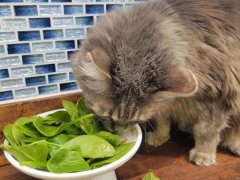
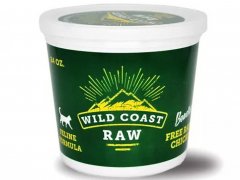
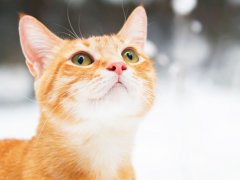
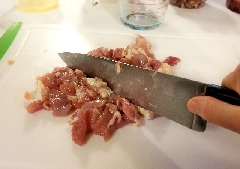

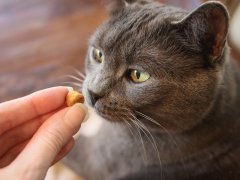

My 3year old cat never chews her lams then throws up she is healthy,i don’t like wet food cause litter smells bad ,help
Hi James,
Thanks for reaching out with your question.
A lot of cats eat the kibble whole and this usually doesn’t cause any problems if the kibble is small in size but it may be that your cat is eating them too fast.
If this is the case and your cat is regurgitating soon after eating food, you could try a slow feeder bowl or puzzle feeder to slow down their eating and help with digestion.
If it’s vomiting which occurs from one to several hours after eating, then it may be that your cat is reacting to the food and it would be worth trying a different one. There are a lot of sensitive diets for cats with sensitive tummies.
If she continues vomiting, I would schedule an appointment with your vet to get her checked.
All the best,
Aisling
If my Vet says my cat is healthy & nothing is wrong, but she will regurgitate her food at least 3-4 times a week… I guess I should see another vet?
Slow feeders don’t work (she flips the bowl or hurries to get food out of it & still regurgitates), automatic feeders do not go small enough (lowest is 10g per dispense & she still regurgitates), she ignore the toys & dispensers…. I resorted to feeding wet food only & feeding her 4 times a day….and she was doing great until a couple of weeks ago.
Started eating in a hurry again & there are no threats, no danger, she eats where she can see everything around her, no one steals or touches her food, no cats lurking outside….nothing has changed…just her.
I love her to death but cleaning up throw up so much…I’m worn out….
I wouldn’t necessarily switch vets right away on this basis alone—if there’s no indication of illness, it sounds like your cat is simply eating too quickly (as you’ve come to assume)—a cat behavior expert may be better-suited to answering this question. From what you’ve described, it sounds like your cat has some lasting sense of food insecurity, perhaps stemming from early-life experiences. Are you 100% sure that you can’t find a slow feeder that would work for your cat? Something like a Licki Mat with wet food smeared all over it may work better. It’s floppy and not so flippable, plus the wet food has to be licked off, which should slow her down a bit. Hope this helps!
Thank you for your response!
No, she has an issue where she scratches more than she should (ripping fur and skin off…) and we are trying out different types of food to give her and see if anything helps. Was told to try chicken (on Applaws Chicken currently) and even if we use a mat to spread it out pretty far, then she just grabs the pieces and swallows them whole.
When we first brought her in (she was a stray that wandered to our house), we found out she was pregnant. She was completely fine with eating her food and we never had any issues while leaving food out constantly. She had her kittens and after they got older (they had been running through the house a couple of months) and we switched to meal times (because of vet’s advice). She suddenly switched. The kittens have never stolen her food and never go near her when she is eating. However, I can’t just leave food out now because she’ll eat it too fast.
I can try to find a behavior expert around here though? I live in Mississippi, U.S. and there are not many options that are close to me (small town). Hopefully I can find one though.
I see. Definitely sounds like an overarching theme of anxiety, then. For starters, I would bring your question to the Cats.com Community—one of our veterinary behavior experts may be able to help.